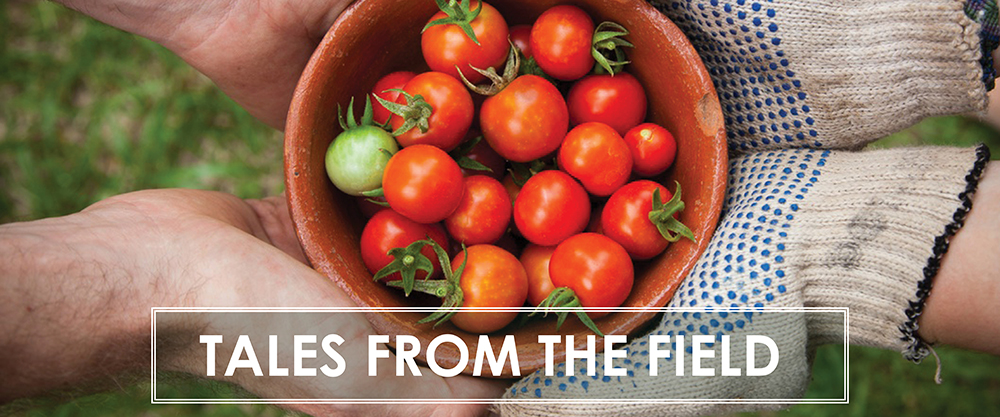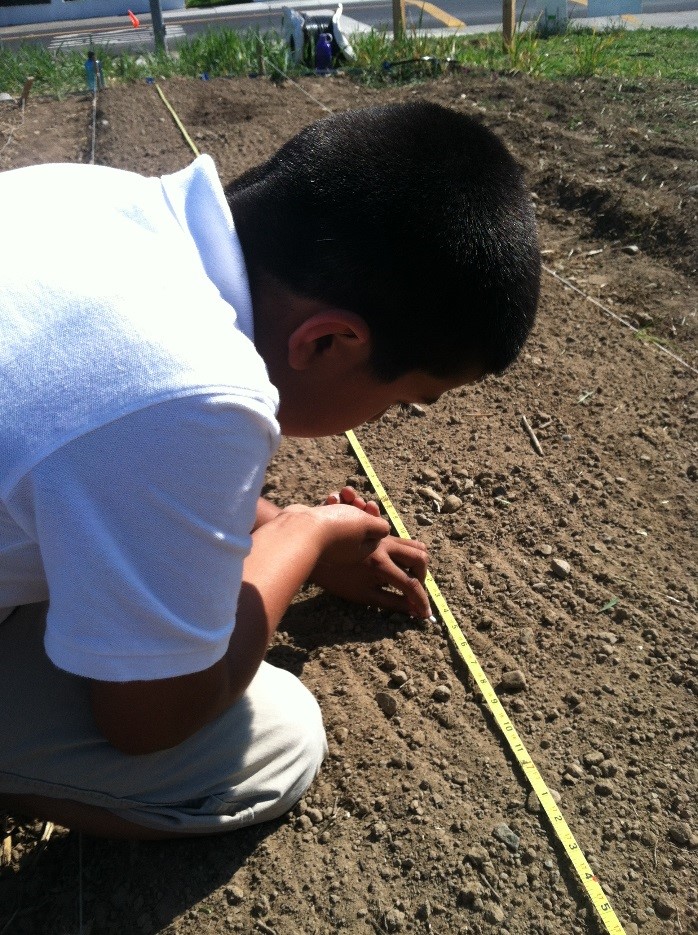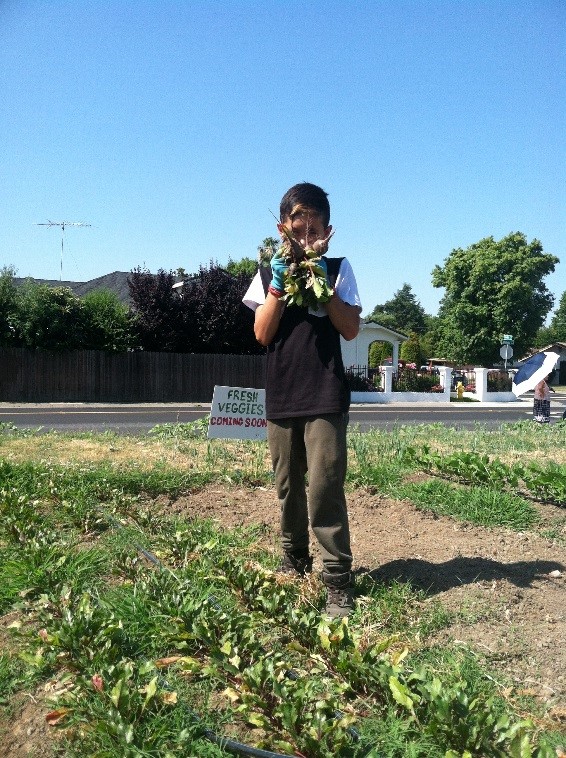***This post is part of our series “Tales from the Specialty Crop Ambassadors” – blog posts written by farmers working with the Center for Land-Based Learning in Winters, CA. The Specialty Crop Ambassadors are spearheading projects that support consumption, education, and access to California specialty crops.***
By Aimee Sisson of Root Cause Farm
Although the average age of American farmers is nearly 60 years old, you wouldn’t know it by spending a day at West Sacramento’s Root Cause Farm, where farmer and Specialty Crop Ambassador Aimee Sisson runs an afterschool and summer farmer training program for grade school students. On a sunny July day, Sisson was harvesting potatoes with two young farmers in training. Despite the heat, the sixth-graders excitedly dug through the soil with their gloved hands, competing to find the biggest potato. “These kids love being on the farm,” says Sisson. “The farm offers a place for the neighborhood kids to be physically active and burn off steam, plus a chance to try fresh vegetables that they planted, cared for, and picked themselves.”
When the Farmers in Training program began in March, few of the participants could recognize the vegetables growing in the field. “I took the kids on a farm tour, and had them guess what each bed contained, giving them hints. They guessed tomato for every bed! In June, a new child came to the farm, and one of the regulars volunteered took her on a tour, pointing out each vegetable growing on the farm—lettuce, beets, carrots, green beans, and of course, tomatoes! It’s amazing how much they have learned in just a few months.”
Farmers in Training are given a hands-on experience growing specialty crops at the ½-acre urban farm. Activities have included planting beans from seed, transplanting basil, pulling weeds by hand, broadforking, digging Bermuda grass, and reaping the reward of all that hard work through harvesting. “As long as they don’t need a knife to harvest it, I let the kids help pick the veggies,” says a smiling Sisson. Sisson also has the kids participate in post-harvest processing such as washing and bunching vegetables, and weighing and recording daily yields. “One of their favorite activities, besides eating freshly picked watermelon, is running the farm stand.” Sisson watches with motherly pride as the young participants greet customers, weigh their purchases, add up the total, make change, bag the items, and thank each customer. “The farm stand is a great opportunity for them to practice math in a real-world situation and learn important customer service skills,” says Sisson.
Sisson hopes that the Farmers in Training program will have a lasting impact on participants and their families. “Not all of these kids are going to become farmers when they grow up, but several of them are at least thinking about farming as a career, which I consider a success.” At least two participants have commented that they want to be farmers when they grow up, and another has adopted the title of “Farmer Jayla,” emulating her mentor Sisson, who is known as “Farmer Aimee” around the neighborhood. According to Farmer Aimee, the participants are eating more vegetables than ever and have a much better appreciation of what it takes to grow the food on their plates. “I am amazed at how willing the kids are to try the produce we are growing on the farm. On farm tours, they want to sample everything, even the raw beets! I warn them that they might not like something, but they often surprise me. Once the kids discovered that the raw beets color their mouths, lips, and teeth bright pinkish-
red, they can’t stop eating them and sticking out their tongues.”
After each day on the farm, participants are sent home with fresh vegetables. “It’s great when the kids come back the next day and tell me about the salad they made, or how they ate an entire cantaloupe by themselves,” Sisson notes. “One of my kids loves lemon cucumbers so much that he even spends his own money to buy them at the farm stand. What kind of kid uses his allowance to buy vegetables?” marvels Sisson. A Farmer in Training, that’s who!





